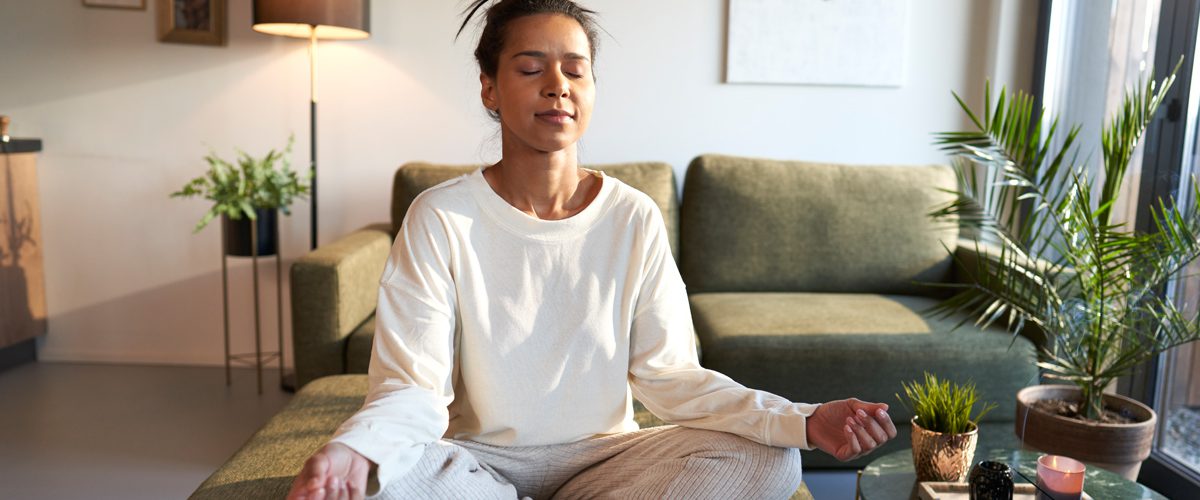Why Self-Care is Essential
An expert explains the health benefits of practicing self-care and why it should not be seen as a selfish luxury.

Between work, family responsibilities, and everyday tasks, you probably feel like you have little time to slow down and assess your own needs. Even when it feels like there are not enough hours in the day to get everything done, it’s as critical as ever to pause and find moments to practice self-care, says Dr. Erin K. Engle, a psychologist with NewYork-Presbyterian/Columbia University Irving Medical Center.
“Self-care is a way of ensuring that we’re making healthy, effective choices that fill us up when we’re depleted” says Dr. Engle. “It helps ensure we’re nourishing our own well-being.” And while the phrase ‘self-care’ might suggest a kind of indulgent or selfish behavior, Dr. Engle argues otherwise: “I’d say self-care is self-preservation.”
However, it’s important to remember there’s no one right way to practice self-care. “Different types of people might require or respond to different types of self-care,” Dr. Engle says.
For more insights into the benefits of self-care, Dr. Engle shared with Health Matters ideas for effective practices to help you find balance in the new year.

Dr. Erin Engle
How do you define self-care?
In the therapeutic literature, it’s defined in many ways. But at best I think self-care is a way of ensuring that we are caring for ourselves in a holistic fashion. It often includes health-related choices that allow us to feel whole and to show up and be our most effective self. We can think about it in terms of sleep, hobbies, or even as attending health appointments; it’s a set of activities that serve to replenish us.
What are some of the more effective types of self-care?
When we talk about day-to-day maintenance, self-care is usually things that make us feel better and more like ourselves. For example, for those who are spiritual, that could be practices like daily prayer, meditation, or going to synagogue or services. One could think about therapy as self-care. But self-care doesn’t have to cost anything. For some people, it might be getting outside, being in green space, or a place that centers them.
When we’re making good choices, especially around things like diet and exercise, usually it makes people feel good. There’s something positive about knowing that you’ve carved out time to go to the gym for physical activity versus check emails or scroll mindlessly on the phone; there’s a sense of accomplishment.
Are there any less effective types of self-care? For example, how would you characterize more passive activities like binge-watching television?
Whether we’re talking about binge-watching a television show or staying in bed and taking it easy, I think self-care is subjective. When thinking about a certain practice or behavior, you can ask yourself: Does it help or hinder your sense of feeling whole and nourished? If it feels good in the short term, will it also nourish you in the long-run? It’s good to be aware and notice if, after a self-care practice, you wind up holding more guilt, rumination, or negative affect. Like most things in life, it’s about striking that balance between what is nourishment versus overdoing it.
Is there research to support that self-care is really beneficial to a person’s health?
The benefits of self-care and self-care practices have been well-researched. Speaking generally, the research supports self-care as not a luxury, but rather a necessity. While it depends on the type of self-care, the practice is often linked to decreased stress and to better health. And sometimes self-care practices can orient us to meaning and purpose.
Take someone who is engaging in a routine self-care practice that involves mindfulness – that will absolutely have a protective benefit as it relates to their stress management.
The outcomes might change depending on what the self-care practice is, but the literature definitely supports this as something that’s necessary, especially when it comes to daily stress.
How can people approach self-care as a resolution in the new year?
It’s often good for people to think about a goal: What’s needed right now? For some people, it’s about staying sober, for others it’s about being able to communicate effectively with family, or setting a boundary, or avoiding isolating.
Developing routine is also important. If there’s an opportunity to begin a new practice that allows you to show up and be your best, then try it; if it works, do it again. I also think there’s some benefit to being outdoors, so try making a point to get outside, even if it’s for a breath before going back inside.
